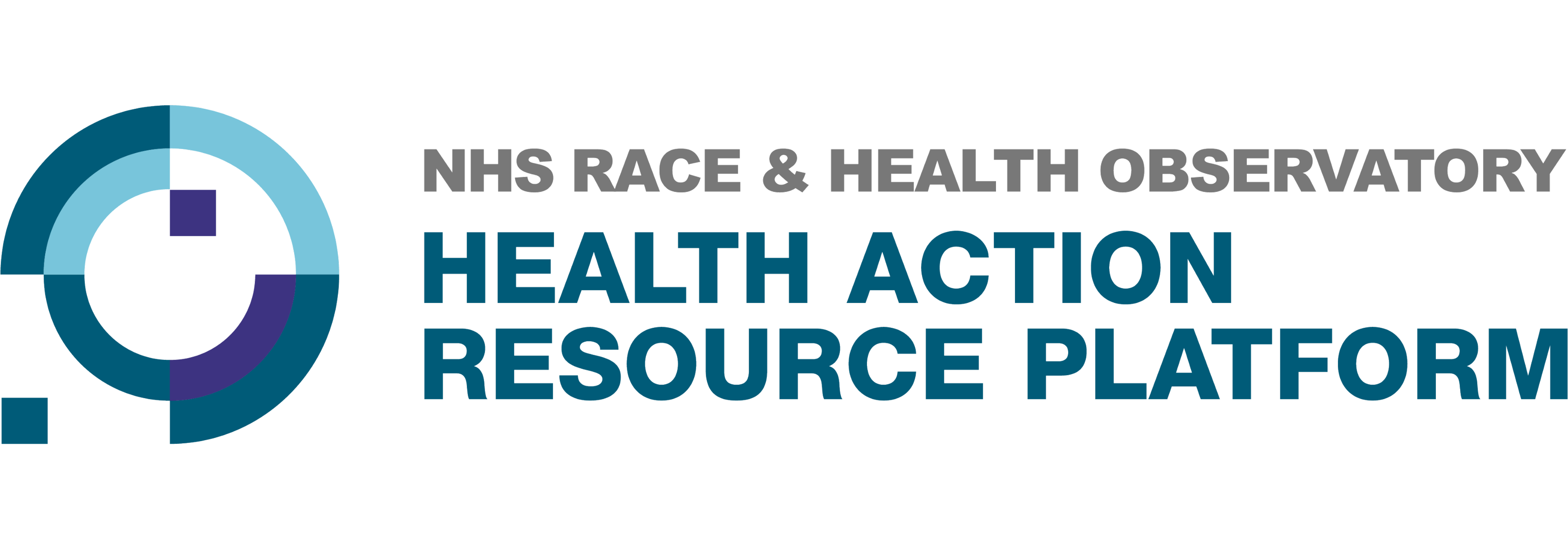This case study summarises the NHS Race and Health Observatory’s Learning and Action Network programme, which focuses on developing an anti-racism-focused Quality Improvement approach to address racial inequalities in maternal and neonatal health outcomes
Context and background
Racial inequities in maternal and neonatal health outcomes are a long-standing issue. Black women are almost three times as likely as White women to die in and around childbirth1; and stillbirth rates differ by ethnicity, with Black babies twice as likely as White babies to be stillborn2. The persistence of these trends; the identification of what has been described as a “constellation of bias”3 in maternity services; and research commissioned by the Observatory which highlighted the paucity of interventions focused specifically on addressing ethnic inequalities in maternal and neonatal health in England, led us to establish a Learning and Action Network focused on maternal and neonatal racial health inequalities.
To our knowledge, no large-scale maternal and neonatal improvement programme has focused specifically on racial inequalities, and we know that there are evidence gaps around transferable interventions aimed at reducing maternal and neonatal racial health inequalities. We therefore established a Learning and Action Network based on the hypothesis that racism is one of the factors that underlies the persistence of these racial health inequalities in maternal and neonatal health.
Through this programme, we aim to do two things:
- To develop an anti-racism focused Quality Improvement approach to support practitioners to identify and address racism within maternity and neonatal services
- To identify, and subsequently scale and spread improvement approaches that embed anti-racism into services and improve maternal and neonatal health outcomes.
We are carrying this work out in partnership with colleagues from the Institute for Healthcare Improvement and The Health Foundation and working with ten teams, from 8 Integrated Care Systems, in four regions.
The programme as a whole, has an overarching aim to: reduce clinically avoidable severe maternal morbidity, perinatal mortality and neonatal morbidity while improving the experience of care for pregnant women and people from Black, Asian and minority ethnic groups.
The first phase of the programme ran for 14 months, from January; 2024, teams are now in a sustainability phase.
Addressing the issues
The Learning and Action Network is an approach to building Quality Improvement capability and capacity, through improvement coaching and shared learning.
We have integrated an anti-racism focus into this approach by:
- Focusing on conditions where we know ethnic inequalities in outcome exist
- Embedding the NHS RHO Anti-Racism Principles into the QI approach
- Testing anti-racism interventions as well as clinical interventions
- Bringing teams together to share learning around implementing anti-racism in the NHS, and holding space for conversations about racism
- Finally, we are working with an evaluation partner to identify insights to augment the evidence base around anti-racism interventions in the NHS
We have been supporting our Learning and Action Network (LAN)teams to integrate the RHO Anti-Racism Principles into the Model for Improvement. This involves using principles around understanding how racism operates at an institutional and system level to consider what we are trying to accomplish. We do this by using data stratified by race and ethnicity to identify areas of focus and assess whether change is an improvement; and involving minority communities in identifying tests of change aimed at improvement
Outcomes
We are working with an evaluation partner to identify contextual factors that enable teams to embed anti-racism approaches to improve outcomes and can share some early learning from our experience of running the programme:
- Working in the equity space can be hard and lonely
- Visible leadership is an important enabler, not just for legitimising conversations about race and anti-racism, but also to facilitate resource allocation
- We often say progress moves at the speed of trust and building trust with minoritised staff, patients and communities requires a significant investment of time. Recognising that leaders operate at all levels of an organisation, it is critical that improvement efforts gain buy-in at all levels.
Key learnings and recommendations
At our final Learning Session, teams shared with us insights from their own experience, for other organisations aiming to implement the RHO Anti-Racism Principles in improvement projects:
Naming racism: Raise awareness of anti-racism actions. Suggestions for how to do this included: training GPs, running workshops with Voluntary Community Social Enterprises (VCSEs); working with local Directors of Public Health; and linking with Ethnicity Diversity and Inclusion (EDI) teams/ representatives.
Understanding and acknowledging how racism manifests and impacts on health: Develop written content that names racism explicitly; have conversations with staff to build understanding and confidence; make sure project groups are diverse
Involving racially minoritised people: Go to the places where people are; listen with humility; take time to get to know each other; organisational humility and visibility in place are enablers.
Disaggregate data by race and ethnicity: Find ways to automate data-sourcing where possible; invest time in baseline data and regular data reviews; share data with clinical teams and service-users. Go where the energy is; be transparent. Shared local, regional and national learning can be an enabler.
Apply a race-critical lens: Be prepared to challenge your ideas; collaborate and expand your network – include QI experts and experts by experience.
Identify racial bias: Digital team involvement is key, as is a realistic assessment of the required time commitment. Ensure service user involvement is continuous, not ‘one-off’.
